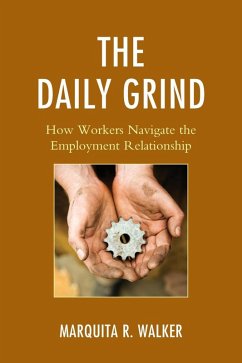The Daily Grind:How WorkersNavigate the Employment Relationship introduces students to the tensions between labor and management within the U.S. employment relationship and explores how workers, operating in a socially and culturally structured system of capitalism, are influenced and manipulated by economic institutions and polity which exploit, devalue, and dehumanize workers in the name of corporate profit. The text covers how the American work ethic of the early nineteenth century helped shape the current perspective on the labor-management relationship, and how, over time, the Protestant and patriarchal influences of that period have countered the collective actions of workers in profound ways. The text further explores the effect of societal, cultural, and economic structures, both global and local, which limit workers' ability to achieve the "American Dream" and result in depressed economic conditions and discouraged workers. The text's focus on the current economic inequality and lack of social mobility challenges the current neoliberal ideology that capitalism is the best economic system. The overarching framework for The Daily Grind: How Workers Navigate the Employment Relationship is situated in Labor Process Theory (LPT) which explores the control and resistance dichotomy between labor and management, the systematic deskilling of the workforce in order to increase production and increase owners' profits, and examines conflict over control of the labor process. An extension of Marxist theory about the organization of work, LPT explores the employment relationship, the control of work, the payment of work, the skills necessary for work, and the facilitation of work.
Bitte wählen Sie Ihr Anliegen aus.
Rechnungen
Retourenschein anfordern
Bestellstatus
Storno









